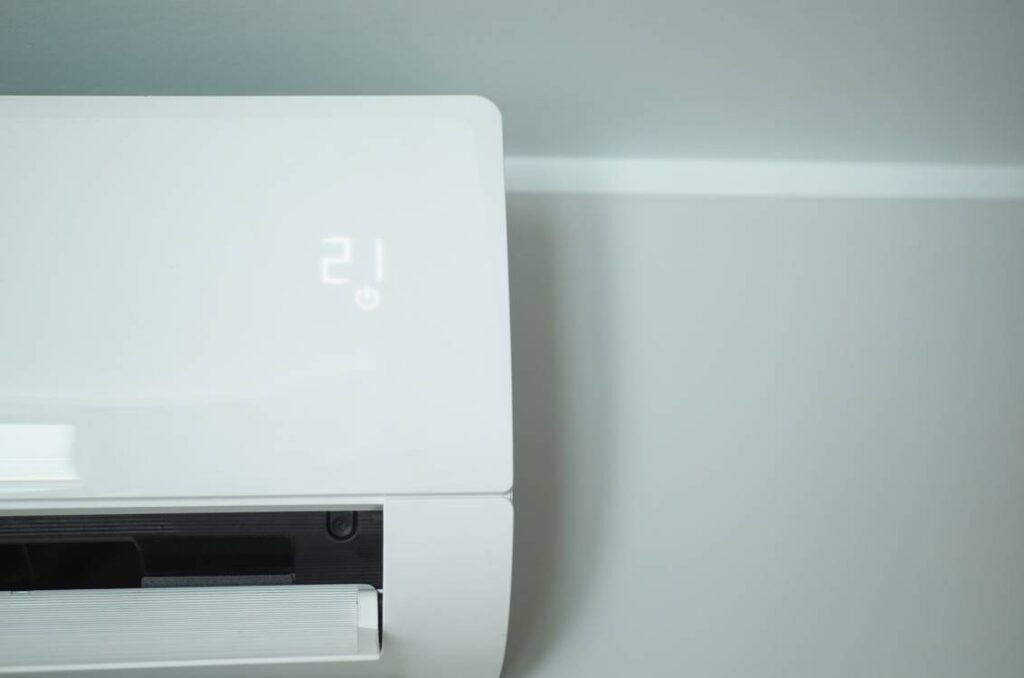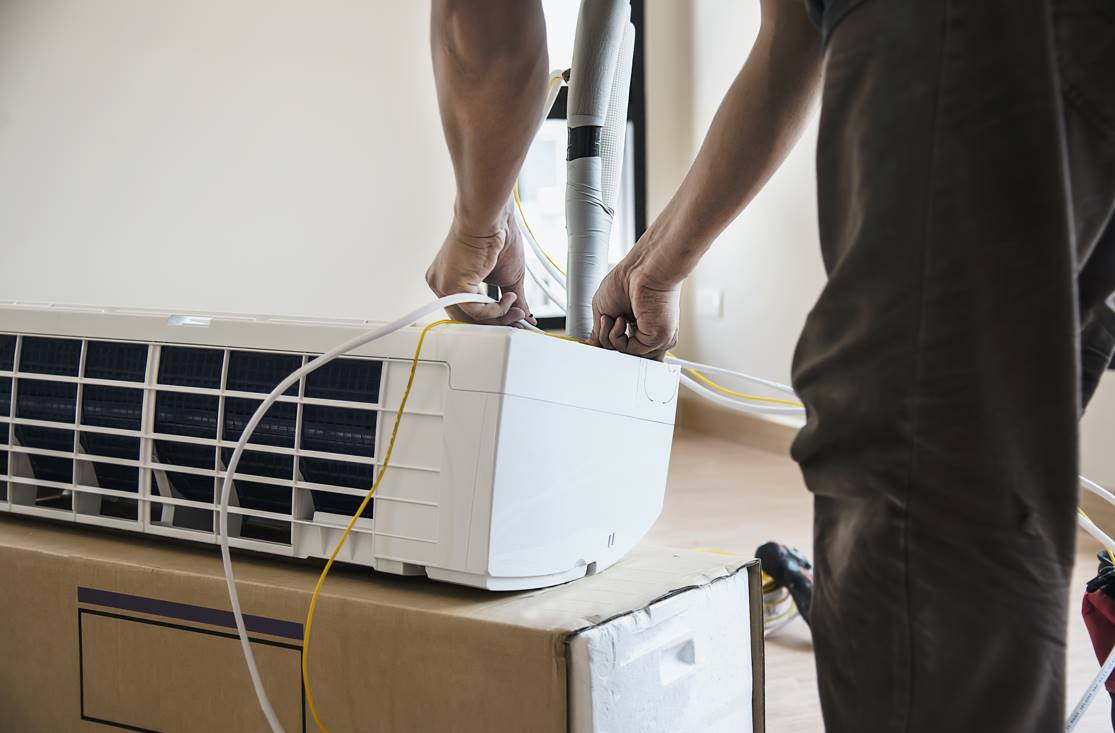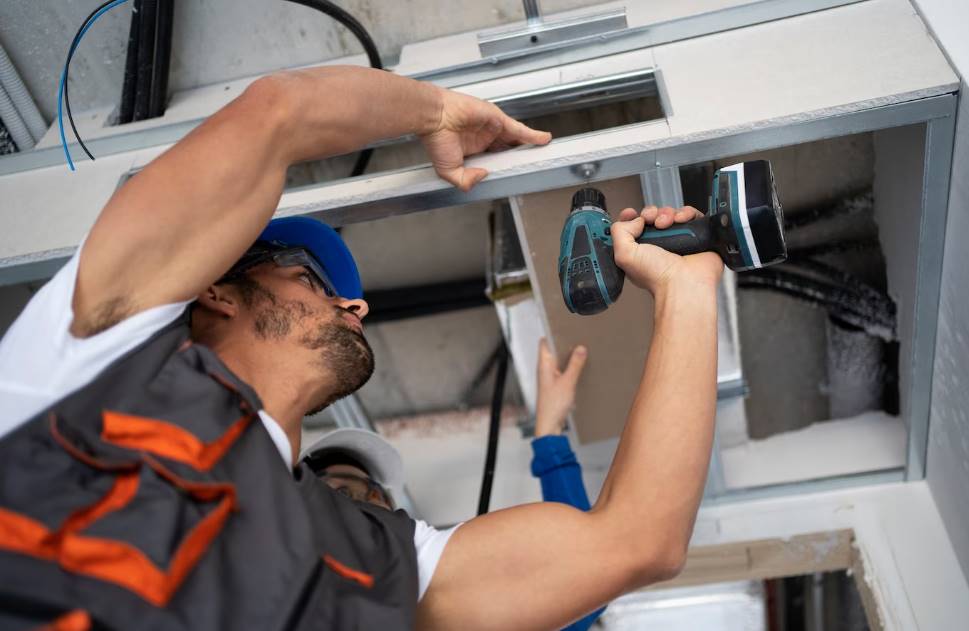If you're here, it's probably because you just bought or are in the process of buying your first house.
However, it's important to remember that there will be a new set of priorities to think about once you get your hands on your new home. Your home's heating and cooling system is a crucial component.
Your home's central air conditioning system works hard throughout the year to ensure comfort. Therefore, regular maintenance, as well as replacing the system when the time comes, is essential.
For this reason, we've put together this guide to HVAC systems for new homeowners. What follows is essential information.
Learning the Fundamentals of Air Conditioning
Let's go back to the beginning. Explain what an air conditioner is and how it functions.
An HVAC system's primary function is to regulate the indoor environment, including the humidity, temperature, and air quality. It transfers indoor heat to the outside of your house, creating a cool and comfortable environment.
How to Pick an AC Unit That's Right for Your House
Choosing the right air conditioning system for your home is crucial since it affects your comfort, energy efficiency, and happiness. Here, we'll walk you through the steps to make the best decision possible.
Different Kinds of Air Conditioning Systems for Homes
A variety of home air conditioning systems are available to suit your needs. The most typical examples are:
Split Central Air Conditioner
Ductwork delivers air in the most typical central air conditioning system. The ' split' system is one of the most popular AC setups.
The heat is taken in by the indoor unit and released from the outdoor unit as the refrigerant moves back and forth between the two. The air can be dehumidified while being cooled by the refrigerant.
The furnace blower then sends the cooled air throughout the house. Home thermostats can be changed to maintain appropriate temperatures.
The air conditioner's evaporator coils should be set up close to the heating system's air handler. In many cases, the most economical approach to cooling an entire home is to combine a split-system central air conditioner with an existing furnace.
Packaged Central Air Conditioners
The condenser in a standard split-system Air Conditioner is installed externally, while the evaporator is installed indoors.
Both parts of a central air conditioner are contained in one outside unit that is placed in the ground next to the house. The packaged air conditioner is installed outside the house and draws warm air from inside to cool it.
Ductless Split Air Conditioner
This cooling system does not rely on ducts to deliver cool air to the space. Some older properties need more ductwork for a state-of-the-art ducted air conditioning system. In this case, a ductless system would be the best option.
An in-duct separation Multiple indoor cooling units or "heads" are possible in a ductless system. These can be installed on the wall, the floor, or the ceiling. As the air in the room is cooled by each head, you may customise the temperature in each room or across many units.
The power cable, refrigerant tube, and condensate drain lead outside the indoor heads. A small hole must be drilled into the wall to connect the interior and outdoor units.
Window Air Conditioner
The second compact AC unit is the window variety designed to fit into an existing window opening. The units typically freeze the room they are situated and drip condensation onto the ground outside.
A window air conditioner draws heated air from within a house, blows it over an evaporator coil to chill it, and then circulates the cooled air back inside. The evaporator coil takes in heat from the room and the condenser coil transfers that heat to the outside air.
Portable Air Conditioners
A 'windowless' air conditioner needs venting to remove hot air and moisture despite being portable. These portable air conditioners are installed on the floor inside the room, and the hot air is expelled through the included window vent system.
Because the evaporator fan of a portable air conditioner must run constantly to remove the moisture that has collected on its coils, the unit may be noisier than a central air conditioner.
The visual appeal of portable air conditioners is likewise low. The unit's footprint will take up real estate in the space you're trying to cool, which could compromise the aesthetics of a window there.
Finding the Correct Measurement
When it comes to AC units, size is important. If the unit is too large, it will constantly be turning on and off, wasting energy, while if it is too small, it will need to do a better job of cooling the house. A load assessment based on your home's square footage and level of insulation will tell you what size HVAC system you need.
Evaluations of Energy Performance
These days, saving energy is of paramount importance. Before you buy an air conditioner, be sure you know its SEER rating. These systems have low energy requirements and provide effective cooling.
Smart Air Conditioning Systems
The development of IoT and voice assistants has made it possible to operate your air conditioner from afar. These systems are convenient and efficient by allowing for remote control of settings.
Environmental Impact
The energy needed to run an air conditioner can affect the environment. You may lessen your environmental impact by using your air conditioner sparingly and investing in a system that uses environmentally friendly refrigerants.
Cost Considerations
There is a broad range of how much an AC unit will cost to install and maintain. Budgeting for both the upfront and continuous cost of energy is important. Putting money into a system that uses less energy will pay off in the long run.
Maintenance and Installation
The effectiveness and lifespan of your air conditioner depend on its proper installation. Using experts for this job is recommended so that everything will be set up properly. Keep your system in tip-top shape by doing routine maintenance like cleaning or replacing filters regularly.
Check the Condition of Your Air Conditioner and Heater
A well-maintained HVAC system will serve its owner well for many years. Along the way, it can help you save money as well.
It is the inspector's responsibility to determine a system's health and report any problems that are discovered. Leaves, twigs, and other small debris can accumulate outside and cause the device to malfunction if not regularly removed.
Learn About Common HVAC Units
Varied types of heating and cooling systems serve slightly varied purposes, and this variation is based on elements such as the building's age, climate, and location.
Knowing the make and age of your home's unit is crucial.
Learn How to Locate the Best HVAC Service Provider for Your Needs
Our network of contractors is available to assist you in starting your project immediately or providing the professional guidance you require. We can locate the most qualified neighbourhood experts to meet your needs with just a few easy questions.
A reliable contractor can evaluate the situation, pinpoint any problems or changes, and explain why they are necessary. When deciding whether to replace an older unit or invest in energy-saving enhancements, it's important to consider the system's current efficiency (SEER).
This is also a great time to get to know your thermostat and learn how to maximise its programmable capabilities to save money and energy.
Learn How Much New Heating and Cooling Systems Will Cost
The cost of installing a brand-new system will differ from one person to the next and from one home to the next.
Ductwork replacement might incur extra expenses, the amount of which depends on the square footage of your home.
Remember that an HVAC system's parts are not the whole. To function efficiently, it must be set up and maintained correctly. A qualified HVAC technician is the best person to advise you on your alternatives.
Check Your Energy Bills Regularly
It's a good idea to determine your home's regular energy and utility costs. Estimate the typical monthly expense of heating and cooling your home. In this method, any unexpectedly high costs can be immediately identified, allowing for swift investigation.
You can save money and prevent having to hire a professional to diagnose and clean your air vents if you clean them regularly, move furniture and rugs out of the way, and change the filters.
Get Familiar With Your Warranty
It is important to learn about your HVAC unit's warranty choices, whether you have an older model or a brand new one.
Talk to the seller about any existing home warranties during the inspection time. Previous homeowners could have done something to nullify the guarantee on their property. You must know where you stand and how to avoid doing anything that could null and void a warranty. Talk to a contractor about your alternatives and insurance coverage if you need to replace an entire unit.
Maximise the Performance of Your Equipment
Fixing the Most Frequent Problems
It isn't very pleasant when the air conditioner stops working. Identifying and fixing even the most frequent problems saves you a lot of money and effort. If you need help with how to do something, look it up in the user handbook or contact a technician.
Maintaining Seasonally
Your air conditioner's maintenance needs may vary with the seasons. In the spring, you'll need to clean the coils; in winter, you'll need to cover the outdoor unit.
Can I Do The AC Installation On My Own?
You shouldn't do this if you don't have prior HVAC installation experience. Hiring a professional ensures a secure and functional installation.
Does My Air Conditioner Need Annual Maintenance?
Annual maintenance is necessary for optimal performance and early detection of any concerns.
The convenience of your house can be significantly improved by installing and maintaining an efficient air conditioner. Now that you know the fundamentals, you can make educated decisions as a homeowner, from selecting the appropriate system to guaranteeing energy efficiency.
Having a reliable home air conditioning system is crucial to your comfort. It's possible to have a comfortable temperature throughout your home simply by selecting the right system, having it installed and maintained correctly, and maximising its energy efficiency.
Maintaining your system regularly will increase its longevity and improve your comfort level inside your home.
Having read thus far, you should be ready to make educated choices when installing or upgrading a home air conditioning system. Enjoy your new home in peace.
Conclusion
When purchasing a home, prospective buyers should think about the climate control options available. The heat generated inside of a home is dissipated to the outdoors through the use of a central air conditioning system. The level of ease, financial savings, and contentment you experience all depend on your decision of an air conditioner. Split central air conditioners, packaged central air conditioners, ductless split air conditioners, window air conditioners, portable air conditioners, and smart air conditioning systems are all viable options for those in need of an air conditioning system.
Packaged systems have both components installed externally, while split systems rely on ductwork for air distribution. Multiple indoor cooling units for ductless systems are not limited to being installed in the ceiling or floor. Air conditioners mounted in windows extract warm indoor air, cool it by passing it over an evaporator coil, and then recirculate it back into the home. However, portable air conditioners can be louder and less aesthetically pleasing because they need to be vented to remove hot air and moisture.
The size of the air conditioner you require is determined by a load calculation that takes into account the area of your home and the quality of its insulation. Smart air conditioning systems, which include IoT and voice assistants, enable for remote control of settings and energy performance analyses, both of which are essential. New homeowners can benefit from an educated decision about their home's heating and cooling system if they take the time to learn the fundamentals of air conditioning.
Air conditioning has a major impact on the environment and the cost of setup and upkeep should be taken into account. A system that has been well-maintained can save its owner a lot of money and last for many years. For optimal system performance, routine checks and upkeep are essential.
It's important to know the model and age of your home's HVAC unit because of the variety of tasks they perform. A group of contractors is the ideal place to start looking for a reliable HVAC service provider.
A professional HVAC expert will be able to provide you advice you can trust. You should also examine your energy bills and know what your warranty covers on a regular basis.
To get the most out of your machinery, it's important to keep an eye out for and address any recurring issues. Hiring a technician to do seasonal maintenance on your air conditioner will guarantee a safe and effective setup.
If you want peak performance and early detection of any problems, you need to schedule maintenance once a year. Maintaining your air conditioner on a regular basis will help it last longer and keep you cooler inside your home all summer long. You may relax in your new home with confidence if you take the time to learn as much as possible about air conditioning systems before installing or upgrading your own.
Content Summary
- The blog serves as a guide on HVAC systems for first-time homeowners.
- It is necessary to have a fundamental understanding of what air conditioning is and how it works.
- It is essential to get your home's air conditioning system perfect if you want to maximise comfort and save energy use.
- There are several variations of air conditioning systems available, such as split central, packaged central, ductless split, window, and portable units. Split central air conditioning systems are the most common.
- The significance of determining the appropriate capacity of the air conditioning machine in order to avoid wasting energy.
- The Seasonal Energy Efficiency Ratio (SEER) ratings are used to evaluate the energy performance of an air conditioning system.
- The development of intelligent air conditioning systems that can be controlled from a distance.
- Taking into account the influence on the environment and making use of refrigerants that are safe for the planet.
- Including both one-time and recurring charges in your budget.
- The effectiveness of a system is directly proportional to the quality of its installation and maintenance.
- Maintaining routine checks on the state of the HVAC system, including the clearance of any debris that may have accumulated.
- Gaining an understanding of the various types of common HVAC units and how different households might benefit from each type.
- Finding a reputable source of HVAC repair and maintenance services.
- Assessing the effectiveness of the current setup while taking potential upgrades into consideration.
- Using the programmable features of thermostats to their full potential in order to save energy.
- Developing a cost estimate for the installation of brand new heating and cooling systems.
- Monitoring monthly energy bills in order to identify any unusual activity.
- The significance of keeping air vents clean and well-maintained on a routine basis.
- Being aware of the several warranties choices for your HVAC system.
- Getting the most out of your heating, ventilation, and air conditioning systems.
- Finding and repairing the typical issues with the HVAC system might result in cost savings.
- Air conditioners have specific maintenance needs during the respective seasons.
- The suggestion is bring in an experienced technician to install the air conditioner.
- The need of performing routine maintenance on an annual basis to ensure peak efficiency.
- The importance of having a dependable air conditioning system in the home in terms of providing comfort.
- The significance of carefully considering all of one's options before settling on a choice as a homeowner.
- When you have the right system, you can reap the benefits of having a pleasant temperature in your home.
- Putting an emphasis on doing regular maintenance to improve the longevity and comfort of the system.
- urging homeowners to use the information that has been presented to them in order to make decisions that are well informed.
Frequently Asked Questions About Air Condition
An HVAC system stands for Heating, Ventilation, and Air Conditioning. Its primary function is to regulate indoor temperature, humidity, and air quality. It works by transferring indoor heat to the outside, creating a comfortable indoor environment.
The choice of the right AC system depends on factors like the size of your home, your climate, and your energy efficiency preferences. Consider consulting with a professional to determine the best fit for your specific needs.
SEER stands for Seasonal Energy Efficiency Ratio. It measures the cooling efficiency of an air conditioner. A higher SEER rating indicates better energy efficiency and can lead to cost savings over time. It's essential to consider SEER ratings when purchasing an AC unit.
HVAC system installation can be complex and requires specific skills. It's generally recommended to hire a professional HVAC technician to ensure a safe and functional installation, especially if you lack prior experience.
Regular maintenance is crucial for the longevity and efficiency of your HVAC system. Typically, you should schedule annual maintenance. Maintenance tasks include cleaning or replacing filters, checking for debris, and inspecting the system for any issues. A professional HVAC technician can perform these tasks during a maintenance visit.



